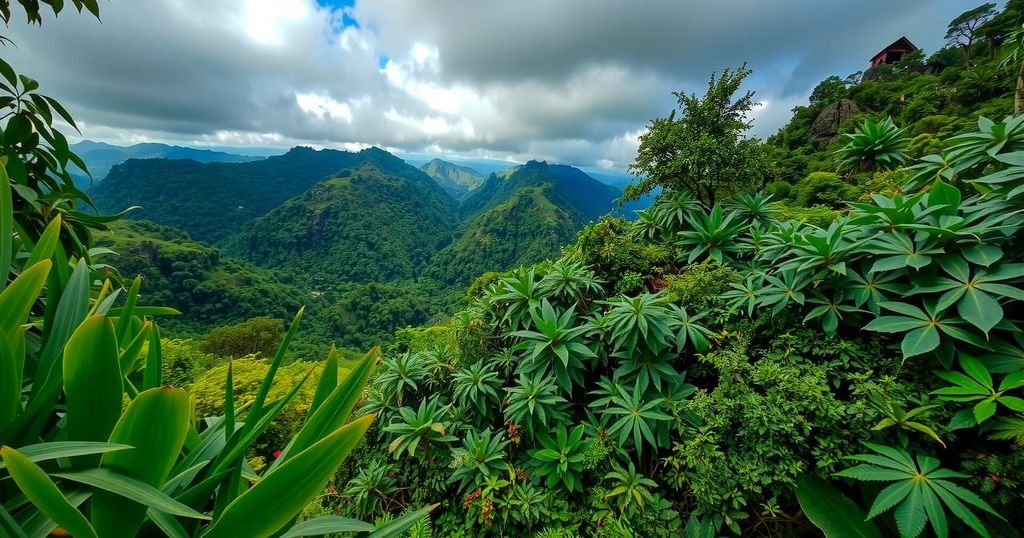On October 14, 2024, Papua New Guinea’s Conservation and Environmental Protection Authority officially introduced 23 National Biodiversity Targets in alignment with the Global Biodiversity Framework, marking a milestone towards sustainable environmental management by 2030 while preparing for COP16 in Bogota, Colombia.
On October 14, 2024, the Conservation and Environmental Protection Authority (CEPA) of Papua New Guinea (PNG) unveiled its 23 National Biodiversity Targets, aligning them with the Global Biodiversity Framework leading up to COP16 in Bogota, Colombia. This pivotal event signifies PNG’s commitment to sustainable environmental management and biodiversity preservation by 2030, ushering in a strategic roadmap dedicated to protecting its unique ecosystems. Supported by the Global Environment Facility through its Early Action Support Project, UNDP assisted CEPA in formulating these targets alongside 195 specific actions and policies aimed at facilitating their implementation. Mr. Jude Tukuliya, the Managing Director of CEPA, expressed gratitude for the collective effort among CEPA officials, government agencies, non-governmental organizations, civil society, and international specialists, acknowledging the complexities involved in this initiative. He stated, “We know what needs to be done to protect PNG’s biodiversity, and we now need to find the means to achieve it.” The Convention on Biological Diversity, established in 1993, aims to conserve biological diversity and promote sustainable development. The Kunming-Montreal Global Biodiversity Framework (GBF), adopted during COP15, outlines 23 targets designed to reach a vision of harmonious coexistence with nature by 2050. COP16 in Bogota will be a critical juncture for nations to present progress on GBF implementation and assess their National Biodiversity Strategies and Action Plans (NBSAP). Both CEPA and the European Union-funded Forestry-Climate Change-Biodiversity (FCCB) program, managed by Expertise France, have collaborated to assemble a government delegation proficient in the 23 National Targets. Delegates plan to leverage insights gained from other parties at COP16, with the potential to hold three side events focused on PNG’s biodiversity and sustainable conservation commodities. Following the conference, a workshop will be convened for PNG delegates and relevant agencies to chart a strategic direction in light of newly established commitments.
Papua New Guinea is home to rich and diverse ecosystems, which are vital for both local and global biodiversity. As a participant in the United Nations Convention on Biological Diversity, the country is obliged to formulate and implement National Biodiversity Strategies and Action Plans (NBSAP) in alignment with international biodiversity goals. The recent alignment of PNG’s National Biodiversity Targets with the Global Biodiversity Framework signals a strategic advancement in the country’s efforts to monitor and conserve its natural heritage while committing to sustainable practices. The GBF sets ambitious global targets, which PNG aims to address through its national strategies, thereby contributing to a broader international effort for ecological preservation.
In conclusion, Papua New Guinea’s launch of its National Biodiversity Targets represents a significant commitment towards achieving sustainable environmental management and biodiversity conservation by 2030. With the support of global partnerships and a comprehensive action plan, the country is poised to engage effectively at COP16 and further its dedication to global biodiversity efforts. The collaborative endeavor among various stakeholders highlights the essential role of collective actions in addressing the pressing challenges faced by biodiversity today.
Original Source: www.undp.org







